
The Arizona Libertarian Party (AZLP) is the Arizona affiliate of the national Libertarian Party (LP) and has been active since its foundation on October 7, 1972.
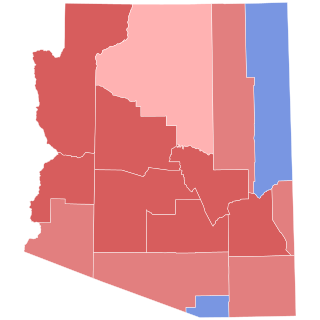
The 2010 United States Senate election in Arizona took place on November 2, 2010, along with other elections to the United States Senate in other states as well as elections to the United States House of Representatives and various state and local elections. The primaries were held on August 24, 2010. Incumbent Republican U.S. Senator John McCain, who had lost the 2008 presidential election to then-United States Senator from Illinois Barack Obama, ran for reelection to a fifth term and won. As of 2025, this was the last time the counties of Coconino and Pima voted for the Republican candidate.

The 1914 Arizona gubernatorial election took place on November 3, 1914, for the post of the Governor of Arizona. The Supreme Court of Arizona ruled that there would be no statewide elections in 1912, thus extending the terms to sync up with elections on even years. The Democratic nominee was incumbent governor George W. P. Hunt, his Republican opponent was the final Delegate to Congress from Arizona Territory, Ralph H. Cameron. Cameron was disadvantaged by the same reason the previous Republican nominee Wells was: he had opposed statehood with the present Constitution.
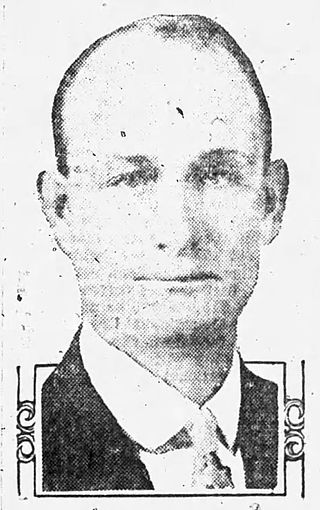
Fred Tuttle Colter was an Arizona rancher and farmer, as well as being the state senator for Apache County beginning with Arizona's second state legislature in 1915. Colter spent six terms in the Arizona Senate. He also led the fight on Arizona's behalf to maintain control over the water from the Colorado River, coining the slogan, "Save the Colorado for Arizona". He was a close ally of the state's first governor, George W. P. Hunt. Prior to his election to the state senate, Colter had served as the state's fair commissioner.

Katherine Andrea Lemos is an American safety professional and the former chairperson and CEO of the U.S. Chemical Safety and Hazard Investigation Board (CSB).
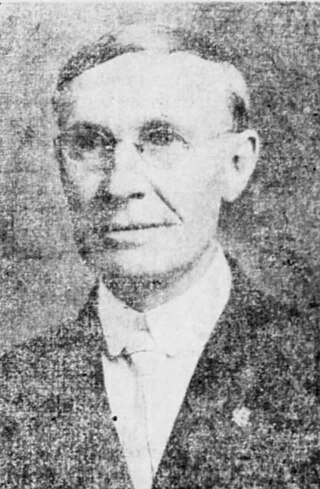
William Prescott Sims ) was a politician and dentist from Arizona. He served in Arizona State Senate in the 1st, 2nd, and 5th - 7th State Legislatures. He served as the President of the Senate during the 2nd Legislature.

David Harmon Claridge was a politician from Arizona who served in the Arizona Senate for several terms. He was also a rancher, a farmer, and an Arizona pioneer. In the 1920s he stopped ranching and moved to Phoenix, where he became involved in the real estate business.

Sam F. Webb was a politician from Arizona who served in the Arizona legislature for several terms, both when it was a territory and after it became a state. He served in the state house of representatives during the 12th, 14th, and 25th Arizona Territorial Legislatures, and in the upper house of the legislature, called the council, during the 15th Arizona Territorial Legislature. During the 14th and 25th legislatures he served as Speaker. He also served in the Arizona State Senate during the 2nd Arizona State Legislature. He held several other governmental positions over the years, including customs inspector for Arizona, Maricopa County treasurer, as well as serving in both the Maricopa County's assessor's and recorder's offices, and a short stint as a deputy U.S. Marshall. He also operated several successful mining operations in both Arizona and Sonora, Mexico, was both a rancher and farmer, and was the editor of several papers in Tucson and Phoenix.
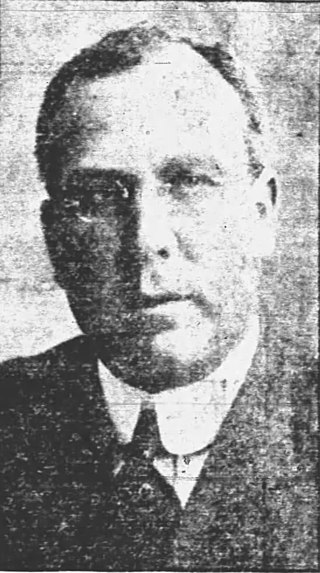
Mose Drachman was a pioneer business and civic leader, as well as politician, in Tucson, Arizona, during the early 1900s. He was involved in numerous interests, including mercantile, real estate, banking, mining, and cattle. He served as the Senior Clerk for the U.S. District Court in Arizona during the term of William H. Sawtelle, served two terms on the Tucson City Council, and five consecutive terms on the Tucson Board of Education, as well as being on both the Tucson and Phoenix chambers of commerce. He also served a single term in the Arizona state senate during the 2nd Arizona State Legislature. Two books were written about his life, Ridin' the Rainbow, and Chicken Every Sunday, the latter being made into a Broadway play, as well as a motion picture of the same name.
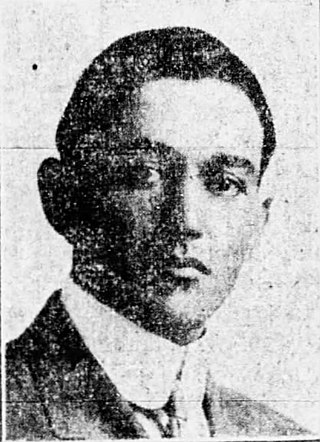
Andrew P. Martin was an Arizona politician who served a single term in the Arizona State Senate during the 2nd Arizona State Legislature. He was known as the father of the Arizona National Guard, having organized and led the first company in the territory in 1910. With no formal education in pharmacology, he became a registered pharmacist, and grew his father's single drugstore to become the largest drugstore chain in Tucson, before selling it in 1954. He was also called the father of the University of Arizona College of Pharmacology, having led the drive to establish the school. In addition, he saw combat as an artillery soldier during World War I.

Henry Bannister Wilkinson was an American lawyer and politician who served three consecutive terms in the Arizona State Senate from 1918 to 1922, serving as the President of the Senate in his third term, during the 5th Arizona State Legislature. He unsuccessfully ran for several other offices, including in 1933, when Wilkinson lost in the first special election held in Arizona, for Arizona's sole congressional seat. He lost in a landslide to Democrat Isabella Greenway, who garnered 73% of the vote to become the first woman from Arizona to go to Congress. He was instrumental in bringing main line railroad service to Phoenix, Arizona; was one of the founders of what is known today as Banner - University Medical Center Phoenix; was a member of the Arizona State Bar for over fifty years, serving as its president one year; and was very active in the movement to improve the roads in Arizona.
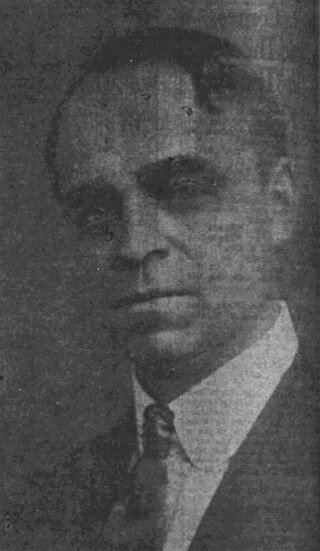
Fred Ormal Goodell (1876-1961) was an Arizona politician who served three consecutive terms in the Arizona State Senate from 1917 through 1922. Very active in the Masons, he served in all of their major posts in Arizona, including being the Grand Master of Masons in Arizona, the Grand Commander of Knights Templar in Arizona, the Grand Master of A. & S. M. of Arizona, and the High Priest of R. A. M. of Arizona. He served as the county comptroller for Pima County for 21 years, from 1935 to 1956.

Charles Hays Rutherford was an American lawyer and politician from Arizona who served in the Arizona State Senate from 1917 through 1918, during the 3rd Arizona State Legislature. He also served during the 6th Arizona State Legislature. He served in the Army Reserve, first in the JAG corps, then in the Specialist Reserve Corps, eventually attaining the rank of Colonel. From 1930 until his death in 1950 he served as a civilian aide to the Secretary of War. He practiced law, first in Indiana early in his career, and then in Arizona, until he was disbarred by the Arizona Supreme Court in 1949.
Harold A. Elliott was an American lawyer and politician from Arizona. He served several terms in the Arizona State Senate from the 4th Arizona State Legislature through the 7th Arizona State Legislature. He graduated from the University of Michigan Law School, and became an attorney, eventually becoming Phelps Dodge's chief counsel.

Charles C. Green was an American rancher and politician from Arizona. He served a single term in the Arizona House of Representatives during the 3rd Arizona State Legislature, followed by a single term in the Arizona State Senate during the 4th Arizona State Legislature.
John P. Cull was an American politician from Arizona. He served several terms in the Arizona State Legislature, beginning in Arizona House of Representatives during the 4th Arizona State Legislature, and then in the Arizona State Senate first in the 5th Arizona State Legislature, and again in the 10th Arizona State Legislature. In both of his re-election attempts to the State Senate he was defeated in the Democrat's primary. During his career he was involved in the banking and mercantile industries, and later on was one of the largest cattle ranchers in Cochise County. During the 1930s he also served on the Arizona State Livestock Sanitary Board.

Harlow Akers (October 28, 1898 - December 1, 1945) was an American politician from Arizona. He served a single term in the Arizona State Senate during the 8th Arizona State Legislature, holding one of the two seats from Maricopa County. In 1932 he ran for the Democrat nomination for the U. S. Senate, but lost to incumbent Carl Hayden.

William C. Joyner was an American politician from Arizona. He served a single term in the Arizona State Senate during the 8th Arizona State Legislature, holding one of the two seats from Pima County. He also served as the state game warden, and was responsible for the construction of the Hunt Bass Hatchery House.

Joe C. Haldiman was an American politician from Arizona. He served three terms in the Arizona State Senate during the 10th, 12th, and 15th Arizona State Legislatures, holding one of the two seats from Maricopa County.



















